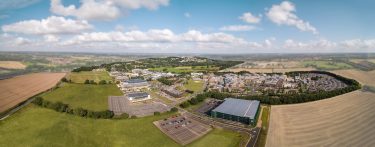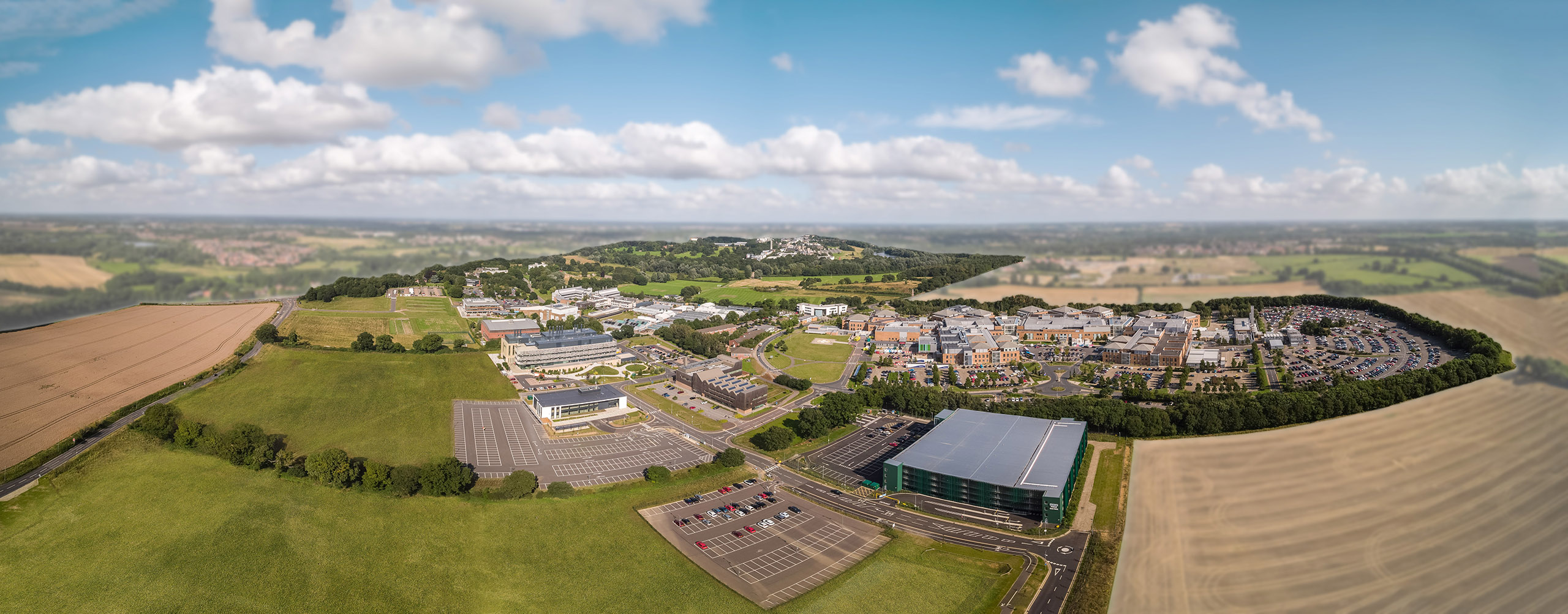Why Norwich is a UK hotspot for innovation in food biotech
- Like
- Digg
- Del
- Tumblr
- VKontakte
- Buffer
- Love This
- Odnoklassniki
- Meneame
- Blogger
- Amazon
- Yahoo Mail
- Gmail
- AOL
- Newsvine
- HackerNews
- Evernote
- MySpace
- Mail.ru
- Viadeo
- Line
- Comments
- Yummly
- SMS
- Viber
- Telegram
- Subscribe
- Skype
- Facebook Messenger
- Kakao
- LiveJournal
- Yammer
- Edgar
- Fintel
- Mix
- Instapaper
- Copy Link
Posted: 24 October 2023 | Norwich Research Park | No comments yet
Norwich Research Park is gaining recognition for research and innovation in areas such as food and nutrition research, healthy ageing and biotech.
The publication of a new study commissioned by the Government Office for Science (GOS) earlier this year highlighted the East of England as a hotspot for biotechnology adoption and commercialisation. The study titled ‘Life Sciences Beyond Human Health – A report on the UK’s industrial biotechnology sector’ identified Norwich Research Park, the Quadram Institute, John Innes Centre and the Earlham
Institute as one of the 12 ‘modern industrial biotechnology’ clusters around the UK.
The East, and specifically Norwich Research Park, is gaining global recognition as a world-leading centre for research and science in modern industrial biotechnology, which encompasses those life sciences outside of human health relating to traditional drug discovery such as food biotech. The report highlighted that the UK may have a competitive advantage in a number of areas in this field including agribiotech and food and drink.


Norwich Research Park is home to many of the institutions, researchers and emerging companies operating in these sectors. Four world-leading research institutes are based there – the John Innes Centre, The Sainsbury Laboratory, the Earlham Institute and the Quadram Institute. Alongside these, on the same campus, are the Norfolk and Norwich University Hospital, an important teaching and research hospital and the University of East Anglia (UEA) well known for its work on healthy ageing and food research.
A good indication of the quality and longevity of the research being carried out at Norwich Research Park is the level of investment being made into the institutes based there.
Earlier this year, the Biotechnology and Biological Sciences Research Council (BBSRC), part of UKRI, announced combined funding of £163.9m over the next five years for the Earlham Institute, John Innes Centre and Quadram Institute to support the cutting-edge science they are undertaking in genomics, plant science, food research and the gut microbiome.
In addition, the John Innes Centre and The Sainsbury Laboratory will receive £317.7m over the next seven years, from the UKRI Infrastructure Fund, to develop their sites with new facilities, equipment and resources that are essential for researchers and innovators to carry out their ground-breaking work in plant science, plant health, genetics and microbiology.
Investments of this scale and over these longer-term periods give potential investors confidence that it is a location worth considering.
Norwich Research Park already has 30 companies on site. Some, like Tropic, Colorifix and Leaf Expression Systems, are well established in their field. The Park, run by Anglia Innovation Partnership, also offers new companies virtual tenancies and has modern office and lab facilities for those wanting to take physical space to start-up and grow. And its Enterprise Strategy, launched last year, is building a healthy pipeline of spin-out and start-up companies.
A good example is PulseON Foods which is a company formed on Norwich Research Park, that spun out of research at Quadram Institute Bioscience in collaboration with technology co-developers Kings College London and New Food Innovation Ltd. Researchers had developed a unique, patented food ingredient – PulseON® – made from pulses that they hope will help people to have healthier guts.
Pulses like chickpeas, beans and lentils are a great source of fibre and protein. Flours made from pulses can make healthier alternatives to refined cereal flours. The researchers found that the milling process commonly used to make pulse flours damages the cell wall structures that are the source of some of the major health benefits.
PulseON Foods was set up to support the commercialisation of PulseON®, its whole-cell pulse flour, and develop a patented alternative milling process to produce the PulseON® flour that, unlike other pulse flours, preserves more of the natural beneficial whole-cell fibre structure.
Foods made with PulseON® are slower to digest, providing slow-release energy while delivering beneficial resistant starch and fibre to the gut microbiome. They can reduce the blood glucose response to white bread by 40% and prolong feelings of fullness by triggering hormones to control our appetite. PulseON® flour will give food manufacturers a new ingredient that can be used to improve the nutritional value of staple foods, including bread, pasta and snack products, in alternative meat products, or as a functional ingredient in sauces. It can also support popular food trends, such as clean-label, sustainability, plant-based and gut-health areas.
Roz Bird, the Chief Executive of Anglia Innovation Partnership, the science park management company for Norwich Research Park said, “We are seeing a pipeline of investible opportunities, in the form of significant new companies, emerging from the institutes on our campus. This exciting activity will help us to attract more people, businesses and investors to the campus. In my experience, research and innovation campuses, like Norwich Research Park have the ability to bring people together, in multi-disciplinary teams, to come up with new ideas to solve the world’s problems and create companies with serious commercial potential. We are confident that we have all the ingredients necessary to be ‘the place to be’ for innovation, ideas and new businesses.” “There are several factors that are contributing to the East of England being a hotspot for innovation in the areas of modern industrial biotechnology including agribiotech, food biotech and industrial biotechnology, firstly having a supportive eco-system in place that builds community, knowledge transfer and collaboration. We have a unique cluster of four world-leading research institutes located here which means that the researchers and scientists collaborate across organisations. That, in turn, leads to new ideas being developed. In science circles, Norwich Research Park is known worldwide as the best place for carrying out research in the areas of food biotech, agri-tech and modern industrial biotechnology.
“Secondly you need the correct infrastructure and facilities so that ideas can be developed fully. This means a wide range of laboratory and office space, good communication links and appropriate technology as well as available land to build on. “Thirdly, you need investment to translate the science into real-life applications, and ultimately, into spin-out businesses. We have built a programme for spinouts and start-ups able to access pre-seed and seed funding to make them ‘investment ready’ and we help to provided platforms to introduce them to angel and corporate investors.”
If you would like to get more information about what Norwich Research Park offers new companies please email [email protected] or go to https://www.norwichresearchpark.com/space-at-the-park
Note:
Biotechnology is a multidisciplinary field that involves the integration of natural sciences and engineering sciences in order to harness biological systems and organisms, such as bacteria, yeast and plants, to perform specific tasks or produce valuable products like life-saving drugs, healthier food products, biofuels, gene-edited crops, and other innovative materials.










